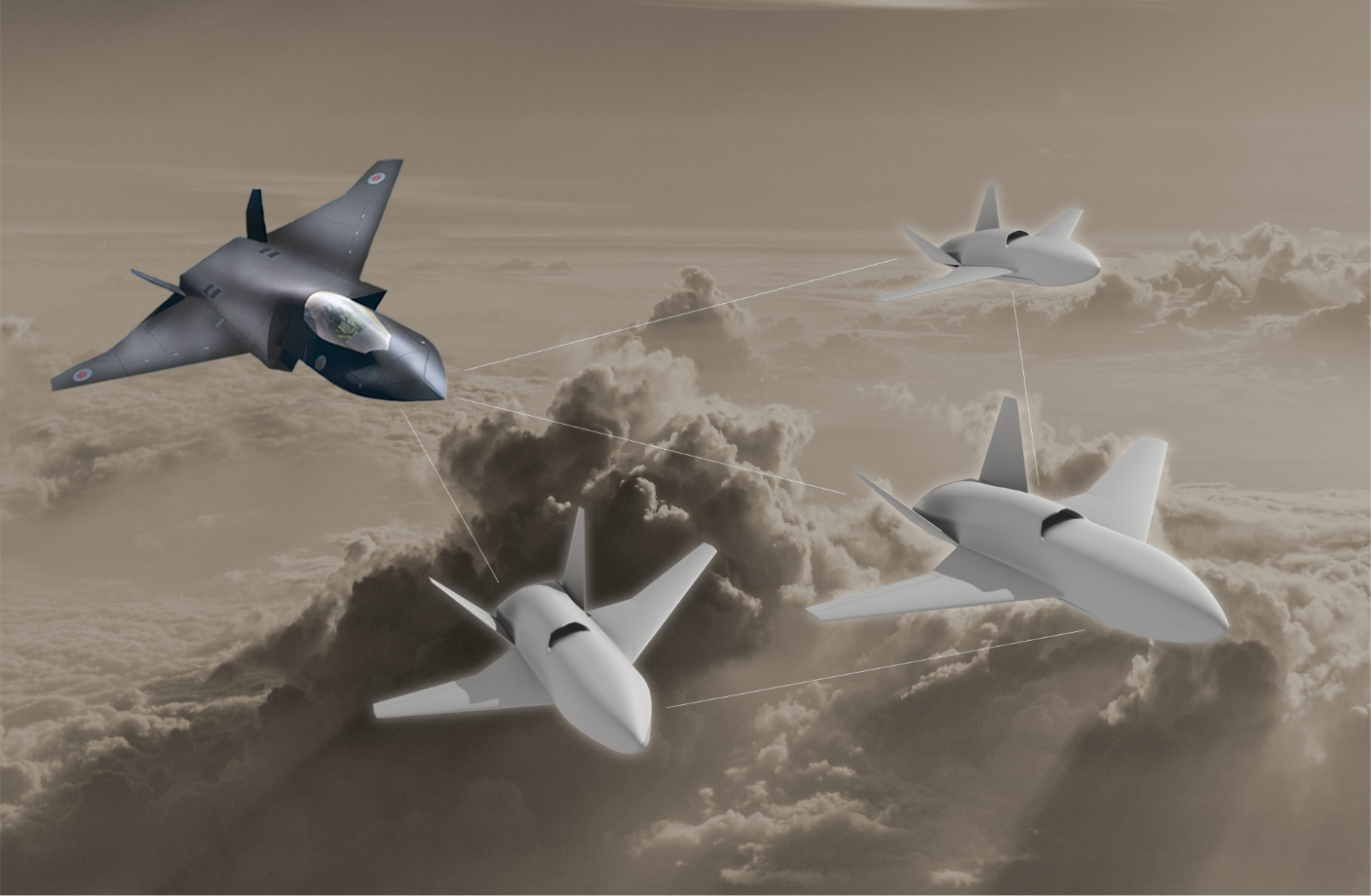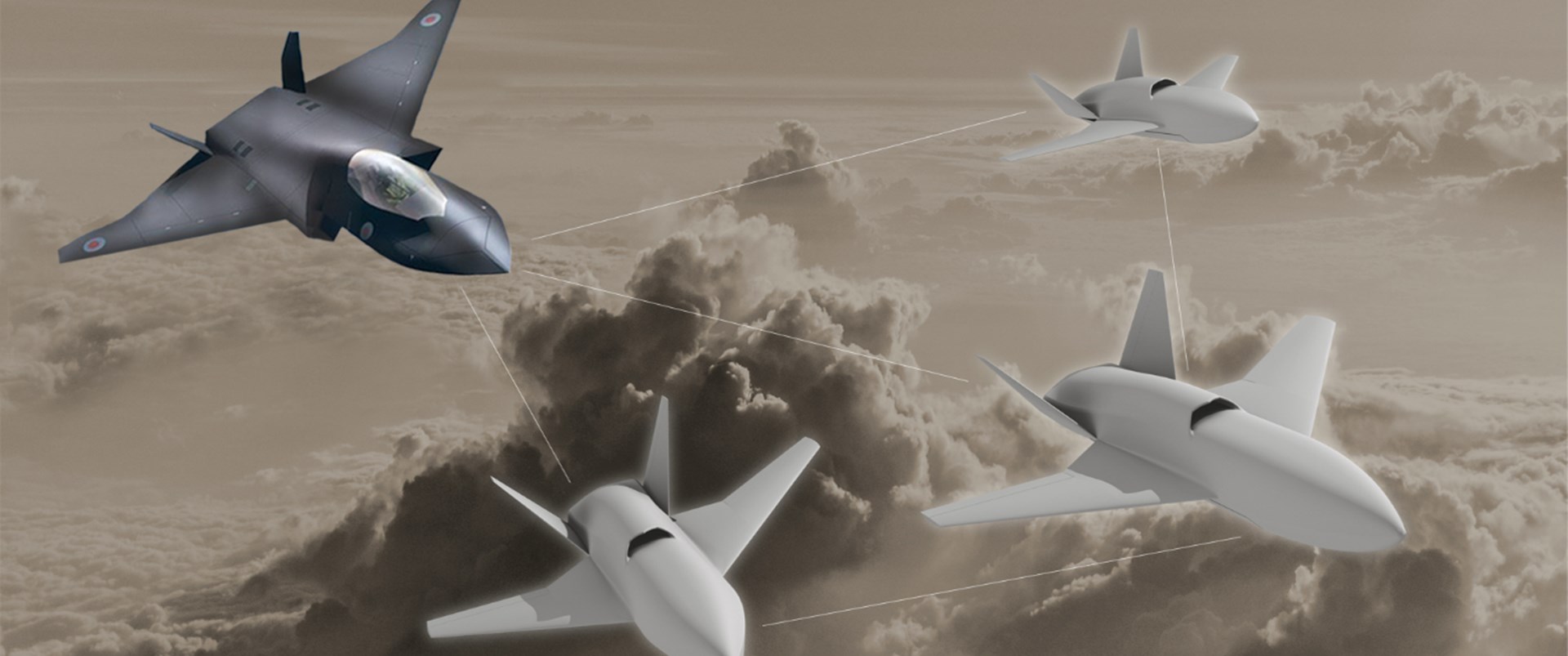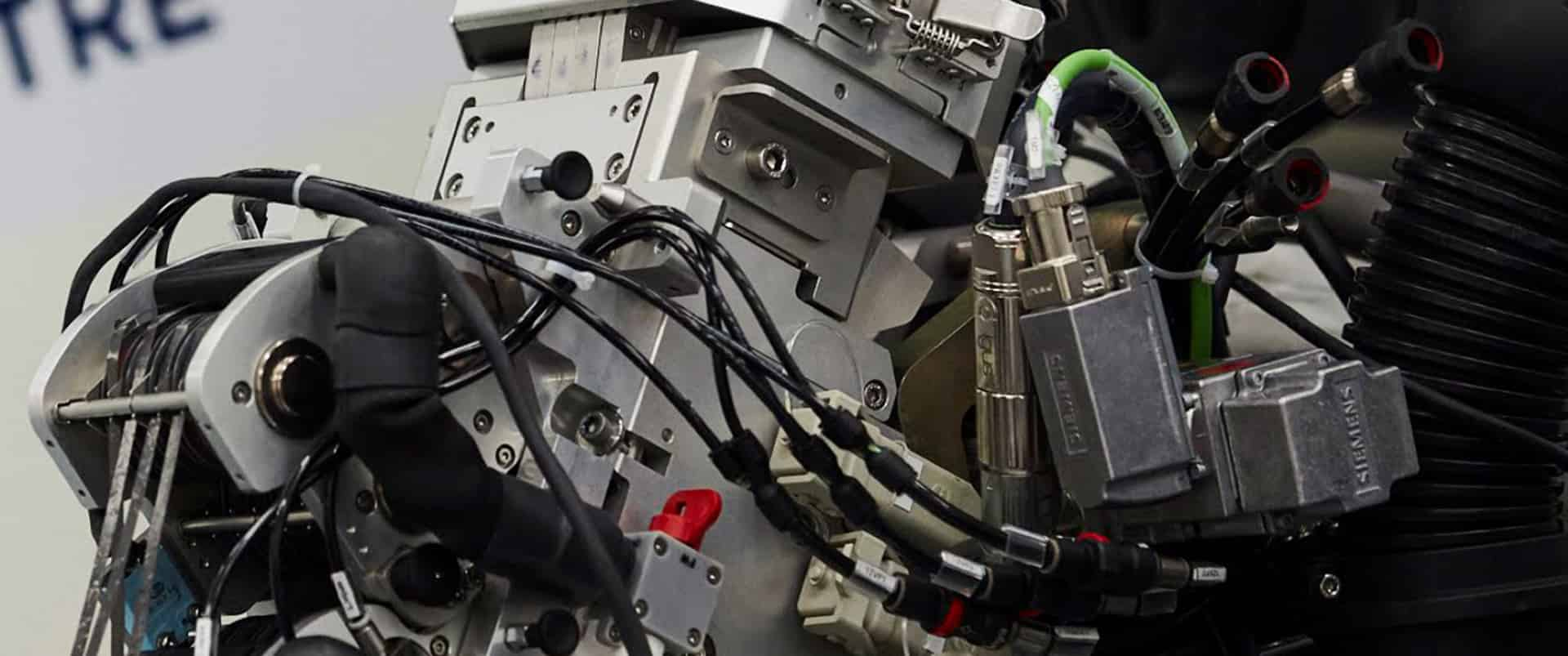15 December 2020

Tuesday 15 December 2020
- This exciting new partnership will explore the art of the possible for composite structures of future combat aircraft.
- A competition is launched for organisations to pitch their most innovative ideas and capabilities to influence the direction of the research and for future funding for research projects.
An exciting new partnership has been formed to explore the art of the possible for the next generation of lightweight, strong and resilient combat aircraft composite structures. This will range from innovative approaches to overall structural layout, manufacturing and assembly to the optimal combination of detail features, and material selection.
The National Composites Centre (NCC) - one of the seven High Value Manufacturing Catapult centres - and the Defence Science and Technology Laboratory (Dstl) are leading the programme through their joint steering group and wider community, which will bring together the greatest minds from academia, leading defence primes, SMEs and other parties outside of the traditional defence sector. The Advanced Design of Composites Structures for Future Combat Aircraft (ADCoSCA) programme includes a balance of intramural research at NCC, and extramural research, both of which could be influenced by the community.
The partnership kicks off with a competitive invitation to organisations to pitch their design and research ideas in order to influence the content of the project, and where and how aspects of it are undertaken. The steering group will then work with the community to develop and downselect these ideas into a coordinated series of funded research projects.
The UK needs to be at the forefront of cutting-edge technology with its defence and combat capabilities to support our national security interests, to protect our people, and to safeguard our prosperity. Investing in advanced research across the range of potential combat aircraft concepts is essential to ensure the defence and security needs of our front-line commands are met. This spans next-generation manned combat aircraft, unmanned adjuncts, and the associated range of development and procurement approaches (e.g. spiral development).
Composites are used in all areas of modern society to make things lighter, stronger, smarter, more durable, and more sustainable. Thanks to the extensive use of composite materials, 15,000km non-stop flights from the UK to Australia are now possible. Wind turbine blades now measure in excess of 100m, generating more clean energy to drive the UK towards a carbon neutral and electrified future. High performance vehicles including modern fighter jets (eg Typhoon) and Formula 1 cars are 80% made from composite materials, which equates to 40% of the total weight for the jet and just 25% for the Formula 1 car. This proves just how effective composites are, however, we know that composite technologies still have a lot more to offer. The NCC and Dstl will innovate, push boundaries and exploit composite technologies for combat aircraft even further through this new partnership.
As a world-leading composites research facility with an unrivalled breadth of industrial scale capabilities, the NCC already works with large defence organisations and others to develop and
de-risk their technology, and it works on future product development programmes related to the defence sector.
Richard Oldfield, Chief Executive of the NCC, said: “We’re delighted to work closely with Dstl to increase the UK’s capabilities and innovation in the use of composites technologies for combat aircraft. As a world-leader in advanced composites design and manufacture, the NCC is uniquely placed to help enhance Dstl’s know-how for future combat aircraft composite structures. That’s why today, we are launching an open call for the brightest and most innovative ideas from a range of organisations so we can work together to equip our Armed Forces with the next generation of high tech, resilient and efficient defence capabilities. This will play a crucial role in how the UK responds to the most complex challenges and threats to national security that our country may face.”
Steve Simm, Air Systems Programme Manager at Dstl, said: “Dstl is the science inside UK defence and security. To perform its role, Dstl must identify and harness the most advanced technologies, and working with the NCC and the wider UK community provides an exciting opportunity to explore the art of the possible in the design and manufacture of composite structures for the next generation of UK combat air systems. The emphasis of this work is the exploration of innovative technologies and approaches to reduce mass and through-life cost, and to increase performance, availability, adaptability and modularity.”
The two primary aims of the programme are:
- to develop airframe design concepts through trades studies and worked examples; and
- to systematically collate and develop the underpinning data upon which the airframe design trades are built, including the performance of composite materials and features, and to identify and mitigate those features that are constraining performance and cost.
Priority shall be given to those transformational ideas that identify and mitigate existing limitations through design, such as through innovative structural layout at the platform and sub-assembly level; through detail features that permit increased operating strain; through design approaches that provide extreme levels of damage resistance and/or tolerance; and through design approaches that provide extreme levels of modularity, adaptability, and part-count reduction.
The steering group would like to engage the UK community, drawing from SMEs, academia and traditional primes as well as parties outside of the traditional defence sector, and would like to explore gearing opportunities such as matched funding and collaboration.
All intellectual property owned by individual organisations will be protected and tracked with any engagements involving the steering group.
The first stage of the process is for organisations and interested parties to pitch their ideas and capabilities through an Expression of Interest. Parties with successful will then be invited to engage in further planning of the research programme, and to submit formal bids for funding. If successful, funding will typically be awarded before the end of March 2021. Thus, interested parties have an opportunity to influence the work of programme and the selection of those undertaking it, and potentially to undertake aspects of the programme themselves.
Further information on the competition process and timetable is available on the NCC website. The steering group is holding a webinar on Wednesday 13 January 2021, 14:00 - 16:00, for anyone interested in applying to find out more and ask any questions. To book your place, you can sign up via our Eventbrite page.
Anyone with questions or who would like to sign up to receive updates about this programme can email [email protected].


